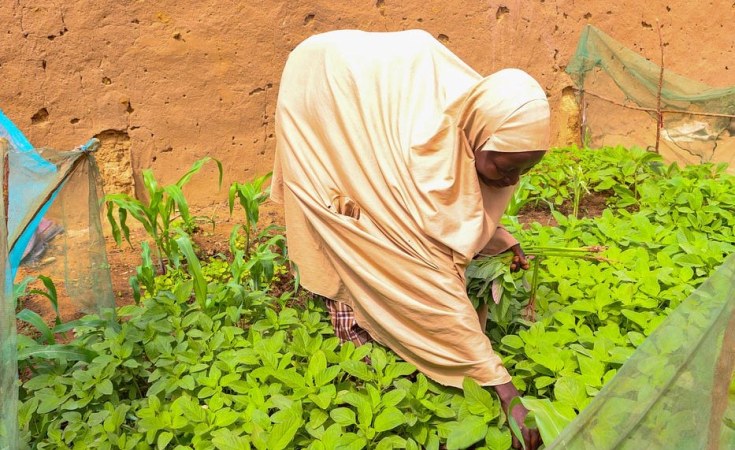1 in 10 children dies from hunger before age five in Nigeria. Achieving SDG 2, zero hunger, and SDG 3, good health and well-being, by 2030 is challenged by hunger and poor nutrition because a productive economy relies on a healthy and adequately nourished population.
According to the Food and Agriculture Organisation of the United Nations, a person is food insecure when they lack regular access to enough safe and nutritious food for normal growth and development and an active, healthy life. Unfortunately, the leading causes of food insecurity include climatic extremes such as drought, poverty, and conflict. Research has shown that climate change has the potential to derail the achievement of a world without hunger and malnutrition because food production has a significant dependency on climatic variables such as rainfall, temperature, and relative humidity, amongst others. As a result of this, countries must deploy mechanisms to ensure resilient food production systems that will translate to better nutrition for the populace.
In Nigeria, the National Climate Change Act supports the implementation of measures to curb the impact of climate change on food production. Direct nutrition interventions can reduce vulnerability and build resilience to climate change consequences.
The 2023 Nutrition Policy Dialogue hosted by Nigeria Health Watch will convene stakeholders from the public sector, civil society organisations, and the private sector to present issues affecting Nigerians' public health, discuss potential solutions and opportunities for progress, and chart actionable recommendations for policy actions.
Titled: "Strengthening Nutrition Outcomes in the Face of Climate Change," the dialogue will bring together stakeholders in government, including the ministries of health, agriculture and environment, academia, research, development, civil society, nutrition commodities manufacturing and marketing, relevant groups and associations and healthcare providers. This year's theme highlights the importance of multi-stakeholder and multisectoral collaboration to strengthen and increase understanding of the linkages between climate change, food security and nutrition and improving policies and practices for nutrition security.
The policy dialogue is scheduled to take place on the 22nd of June 2023.
Participants unable to attend the event in person are encouraged to join online by registering on Zoom here: https://us06web.zoom.us/webinar/register/WN_wonQEr9yTKeM15ILaFbUGA
About Nigeria Health Watch
Nigeria Health Watch is a not-for-profit health communication and advocacy organisation that seeks to advocate for the health of Nigerians, engage and support the government and other partners in formulating and implementing positive and effective health policies, and hold duty-bearers accountable for delivering affordable and quality healthcare to Nigerians. The unique capacity of Nigeria Health Watch lies in its communications expertise which enables the organisation to provide solutions for evidence-based communications and advocacy in the health sector.


